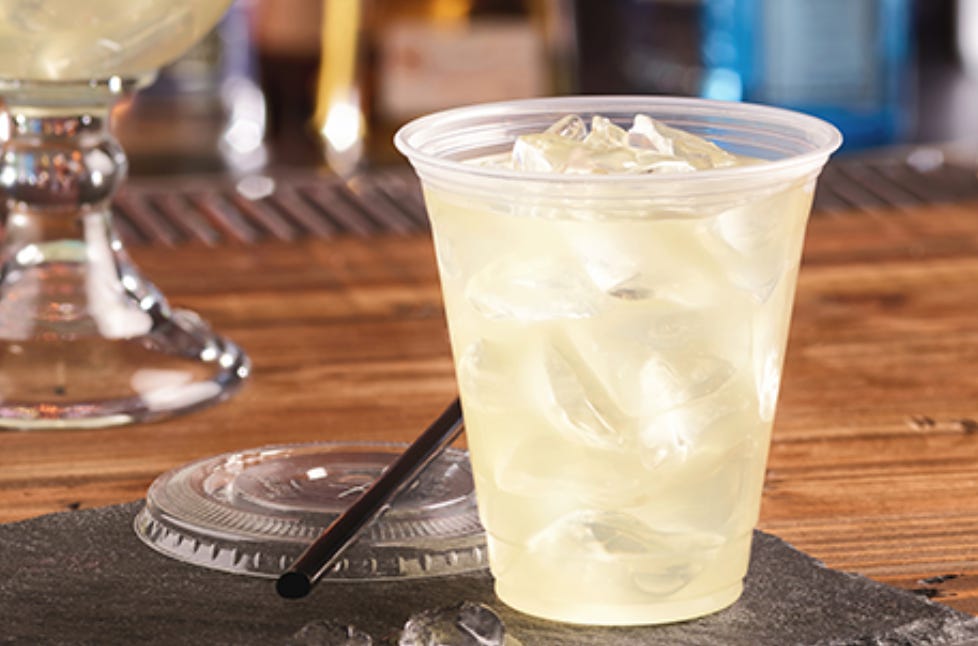To-Go Cocktails Are Now Permanent - But Vermont, This Isn't New Orleans
Think of it less as a party on the go, and more as a carefully regulated way to bring a professionally made drink home.
That cocktail you enjoyed with your takeout during the pandemic is officially here to stay. In a move celebrated by the state’s hospitality industry, Governor Phil Scott signed a bill in May making cocktails-to-go a permanent feature in Vermont. But before you plan on sipping a margarita on a stroll through town, there are a few uniquely Vermont-style rules you need to know.
The new law is a relief for local bars and restaurants, providing a stable, additional source of revenue. However, it’s not a free-for-all. The permanent legislation, born from bill H.339, simply removed the July 1, 2025, expiration date on the temporary pandemic-era rules. That means all the original restrictions are still firmly in place.
Think of it less as a party on the go, and more as a carefully regulated way to bring a professionally made drink home. Here's a breakdown of the can-do's and the cannot-do's for Vermonters.
The Can-Do's: What You Can Get and When
For customers, the process remains straightforward.
Order Up: First and third-class license holders—your local restaurants and bars—can sell you beer, wine, and mixed drinks for off-premises consumption.
Hours of Sale: These to-go beverages can be sold between 10:00 a.m. and 11:00 p.m.
Curbside Continues: Grocery stores and distilleries can continue to offer curbside pickup of unopened containers of the products they are licensed to sell.
The Cannot-Do's: Where the Rules Get Real
This is where Vermont’s cautious approach to alcohol becomes clear. The name "cocktails-to-go" is a bit of a misnomer; it’s more accurately "cocktails-to-go-directly-home."
1. You Must Buy Food. This is the big one. To purchase a to-go cocktail from a restaurant or bar, you must also order food. The law is designed to ensure the drink is an accompaniment to a meal, preventing establishments from operating as de facto liquor stores.
2. No Strolling With Your Drink. The vision of wandering through a downtown festival with a craft cocktail in hand is not the reality here. While Vermont has no single statewide ban on public drinking, a dense patchwork of local ordinances in virtually every town and city—from Burlington’s Church Street to Rutland’s public parks—prohibits possessing an open container of alcohol in public spaces. Your drink must remain sealed until you arrive at a private residence.
3. In the Trunk It Goes. Vermont's open container laws are strict and apply directly to your takeout cocktail. The moment a bartender mixes your drink, it is legally considered an "open container," even in its sealed, tamper-evident cup.
According to state law (23 V.S.A. §§ 1134 and 1134a), it is illegal to have an open container of alcohol in the passenger area of a vehicle. This includes the seats, the floor, and even a glove compartment unless it is locked.
The only legal way to transport your to-go cocktail is in the trunk of your car.
For vehicles without a trunk, like an SUV or hatchback, it must be placed in the area behind the last upright seat.
Getting this wrong can result in a civil fine of up to $25.
Don't Expect Happy Hour, Either
The cautious nature of the to-go cocktail law is mirrored in the state's long-standing ban on happy hour. Vermont remains one of only a handful of states that prohibit time-limited drink specials like "two-for-one" deals.
This ban is a legacy of the 1980s public safety movement aimed at curbing binge drinking and drunk driving. While the state’s hospitality industry has argued for its repeal to stimulate business, the legislature has shown no interest in changing the four-decade-old law. A 2023 bill to authorize happy hour never even made it out of committee.
The one common workaround you'll see is the "all-day special"—a discounted price on a specific drink that runs for the entire day, such as a "Wine Wednesday." This is legal because the discount isn't for a limited period designed to encourage rapid consumption.
Ultimately, Vermont’s approach is clear: it’s willing to provide targeted support to its vital restaurant industry, but not at the expense of its deep-rooted public health and safety principles. So, by all means, celebrate the return of the to-go cocktail. Just be sure to enjoy it with a meal, and once you get it safely home.


